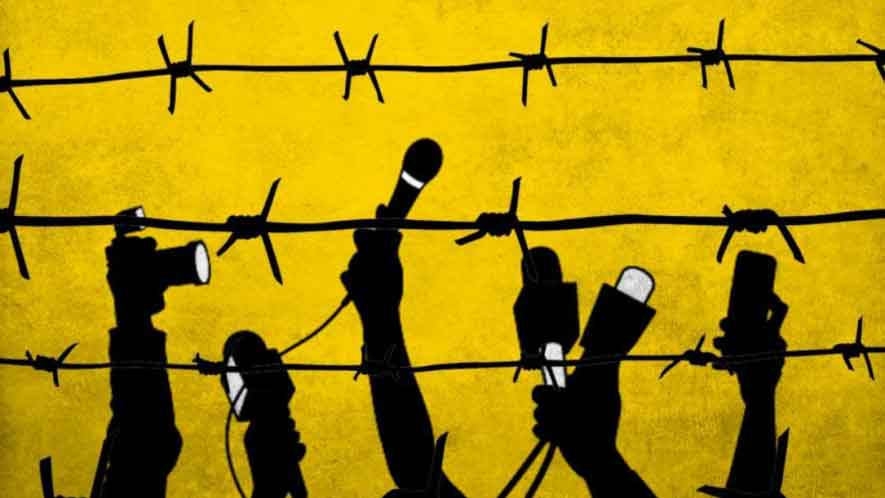
The National Alliance of Journalists (NAJ) and Delhi Union of Journalists (DUJ) have reacted sharply to the newly rewritten guidelines for central press accreditation which were made public recently. The new rules or accreditation guidelines include a veiled threat that accreditation can be withdrawn if a journalist “acts in a manner which is prejudicial to the sovereignty and integrity of India, the security of the State, friendly relations with foreign states, public order, decency or morality or in relation to contempt of court, defamation or incitement to an offence”.
The media associations have raised concerns that this “clause that can be readily misused by the bureaucracy to punish media persons who do not toe the official line on any issue.”
The NAJ and DUJ call this yet another step up on the “increasing curbs on the media, with each new government move designed to restrict free reportage and free speech.” These moves are “ominous and also show signs of a colourable exercise of power, designed to browbeat journalists on what to report, the statement added, beside s being discriminatory against some national and premier organizations of journalists of long standing, which were not even consulted or included in the new committee.”
They associations demand that “since the age of retirement is 58 years, all those who cross this age should be eligible for accreditation as veteran journalists. The policy currently recognizes only those above 65 years as eligible for this category.”
The joint statement may be read here:
What do the Central Media Accreditation Guidelines-2022, say?
Formulated by the Central government, the the Central Media Accreditation Guidelines-2022, state that accreditation will be withdrawn or suspended “if a journalist acts in a manner prejudicial to the country’s security, sovereignty and integrity, friendly relations with foreign States, public order or is charged with a serious cognisable offence”.
There are more clauses under which the accreditation can be withdrawn/suspended such as “actions prejudicial to decency, or morality, or in relation to contempt of court, defamation or incitement to an offence.” Journalists are also now prohibited from using the words “Accredited to the government of India” on public/social media profiles, visiting cards, letter heads or on any published work.
The guidelines do not include digital news publishers, who have furnished details to the Ministry of Information and Broadcasting “under Rule 18 of the Information Technology (Intermediary Guidelines and Digital Media Ethics Code), Rules, 2021, and have not violated the rules.” No accreditation will be granted to freelance journalists working for foreign news media organisations.
What does it mean?
Under the Ministry of Information and Broadcasting (I&B), the Press Information Bureau (PIB) accreditation is also a ‘security clearance’ and identification of sorts that allows recognised media persons access to government offices, and invites to official events. It also allows them access to basic healthcare facilities at concessional rates under government health schemes. As of now there are only 2,457 PIB-accredited journalists in India.
These specific conditions have been put in place for the first time. It makes journalists vulnerable when they do their jobs, that include raising questions against government policies, questioning public officials, and politicians, as well as corporate groups and leaders. Many journalists are already facing harassment, including FIRs, defamation cases etc for doing their jobs. Now if they have any such cases against them their accreditation can be suspended or even cancelled.
Related:
Kashmir: Journalist Fahad Shah arrested for FB post on Pulwama encounter
Pegasus scandal: Did GoI engage in an elaborate cover-up?
Hate as a State project is not a new phenomenon: Survivors
Gauri Lankesh’s journalism revealed how Hate was a State project